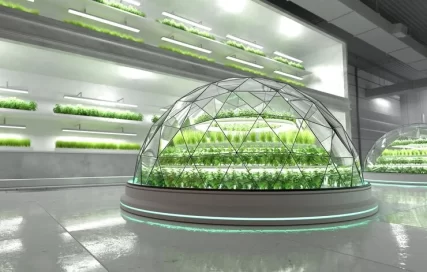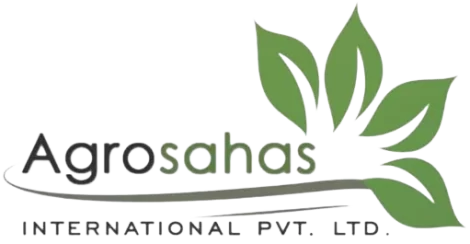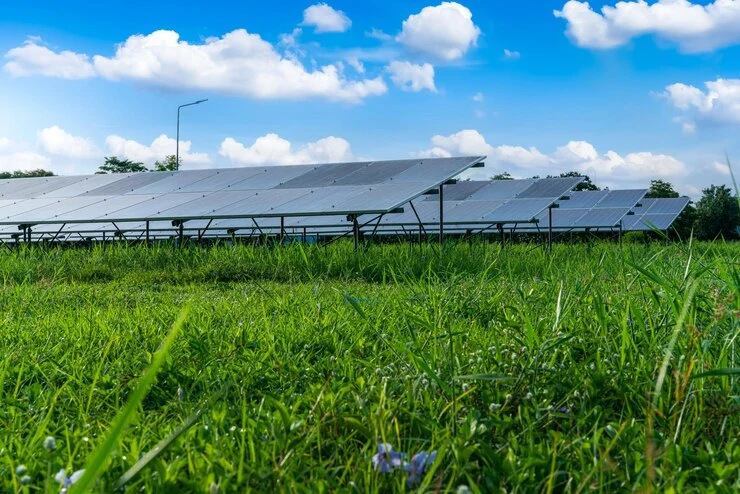As the world moves towards sustainable practices, the integration of renewable energy into agriculture has become a pivotal area of focus. Agrosahas International PVT LTD is at the forefront of this green revolution, implementing innovative renewable energy solutions to enhance agricultural productivity and sustainability. This blog explores how renewable energy sources are being integrated into farming practices and answers key questions about the best renewable energy for agriculture.
The Role of Renewable Energy in Agriculture
Renewable energy plays a crucial role in modern agriculture by reducing reliance on fossil fuels, decreasing greenhouse gas emissions, and promoting sustainable farming practices. The main renewable energy sources used in agriculture include solar power, wind energy, biomass, and hydropower. Each of these sources offers unique benefits and can be applied in various agricultural operations.
Solar Energy: Harnessing the Power of the Sun
Solar energy is one of the most versatile and widely used renewable energy sources in agriculture. Solar panels can be installed on farmland to generate electricity for various purposes, including irrigation systems, greenhouse heating, and powering farm equipment.
- Solar-Powered Irrigation: Solar-powered water pumps are an efficient way to provide water for crops, especially in remote areas without access to the electrical grid. These systems reduce operational costs and environmental impact.
- Solar Greenhouses: By using solar panels to generate heat, greenhouses can maintain optimal growing conditions year-round, increasing crop yields and reducing energy costs.
- Solar Drying: Solar dryers are used to preserve crops and reduce post-harvest losses by utilizing the sun’s energy to dehydrate produce efficiently.

Wind Energy: Tapping into Natural Airflows
Wind energy is another sustainable option for agricultural applications. Wind turbines can be installed on farms to generate electricity, which can be used to power various farm operations.
- Wind Turbines for Electricity: Wind turbines convert kinetic energy from the wind into electricity. This can be used to power farm equipment, lighting, and other electrical needs, reducing dependence on non-renewable energy sources.
- Wind-Powered Water Pumps: Wind energy can also be harnessed to pump water for irrigation and livestock, offering a cost-effective and eco-friendly solution for water management.
Biomass Energy: Utilizing Agricultural Waste
Biomass energy involves converting organic materials, such as crop residues, animal manure, and other agricultural waste, into energy. This process not only provides a renewable energy source but also helps manage waste effectively.
- Biogas Production: Anaerobic digesters convert organic waste into biogas, which can be used for cooking, heating, and generating electricity. This reduces methane emissions and provides a clean energy source.
- Biofuel Production: Crops such as maize and sugarcane can be processed into biofuels, offering a renewable alternative to fossil fuels for farm machinery and transportation.
Hydropower: Harnessing Water Flow
Hydropower involves generating electricity from flowing or falling water. Small-scale hydropower systems can be particularly beneficial for farms located near rivers or streams.
- Micro-Hydropower Systems: These systems can generate sufficient electricity to power farm operations, including irrigation systems and processing equipment, providing a reliable and sustainable energy source.
Agrosahas’ Green Energy Solutions
At Agrosahas, we are committed to integrating renewable energy into our farming practices to promote sustainability and enhance agricultural productivity. Here are some of the key initiatives we have implemented:
- Solar-Powered Irrigation Systems: We have installed solar-powered water pumps in various communities, providing reliable and efficient irrigation solutions that reduce energy costs and environmental impact.
- Biogas Plants: Our biogas plants convert agricultural waste into clean energy, reducing waste and providing a sustainable energy source for cooking and heating.
- Wind Turbine Installations: In areas with sufficient wind resources, we have installed wind turbines to generate electricity for farm operations, promoting the use of clean energy.
- Training and Education: We conduct workshops and training sessions to educate farmers about the benefits of renewable energy and how to implement these technologies on their farms.

Which Renewable Energy is Best for Agriculture?
The best renewable energy source for agriculture depends on various factors, including the specific needs of the farm, geographical location, and available resources. Here’s a brief overview:
- Solar Energy: Ideal for regions with high sunlight exposure. Best for powering irrigation systems, greenhouses, and drying facilities.
- Wind Energy: Suitable for areas with consistent wind patterns. Effective for generating electricity and pumping water.
- Biomass Energy: Excellent for farms with significant organic waste. Provides a sustainable solution for waste management and energy production.
- Hydropower: Beneficial for farms near water sources. Provides a reliable and continuous energy supply.
Conclusion
The integration of renewable energy in agriculture is not just a trend but a necessity for sustainable development. Agrosahas International PVT LTD is leading the way by implementing innovative green energy solutions that enhance agricultural productivity and sustainability. By harnessing the power of the sun, wind, biomass, and water, we are creating a more resilient and eco-friendly agricultural sector. Our commitment to renewable energy not only benefits the environment but also supports the livelihoods of farmers by reducing operational costs and improving efficiency.




